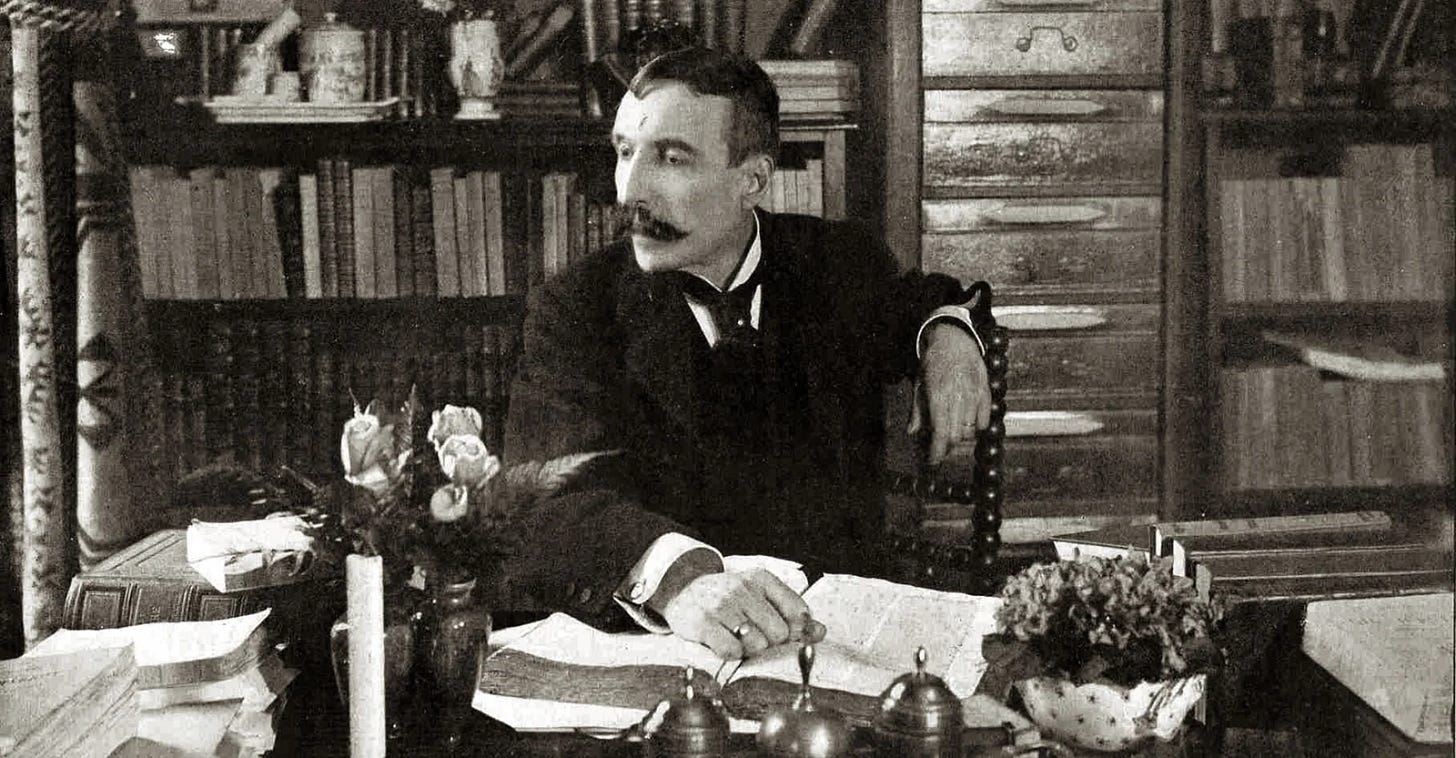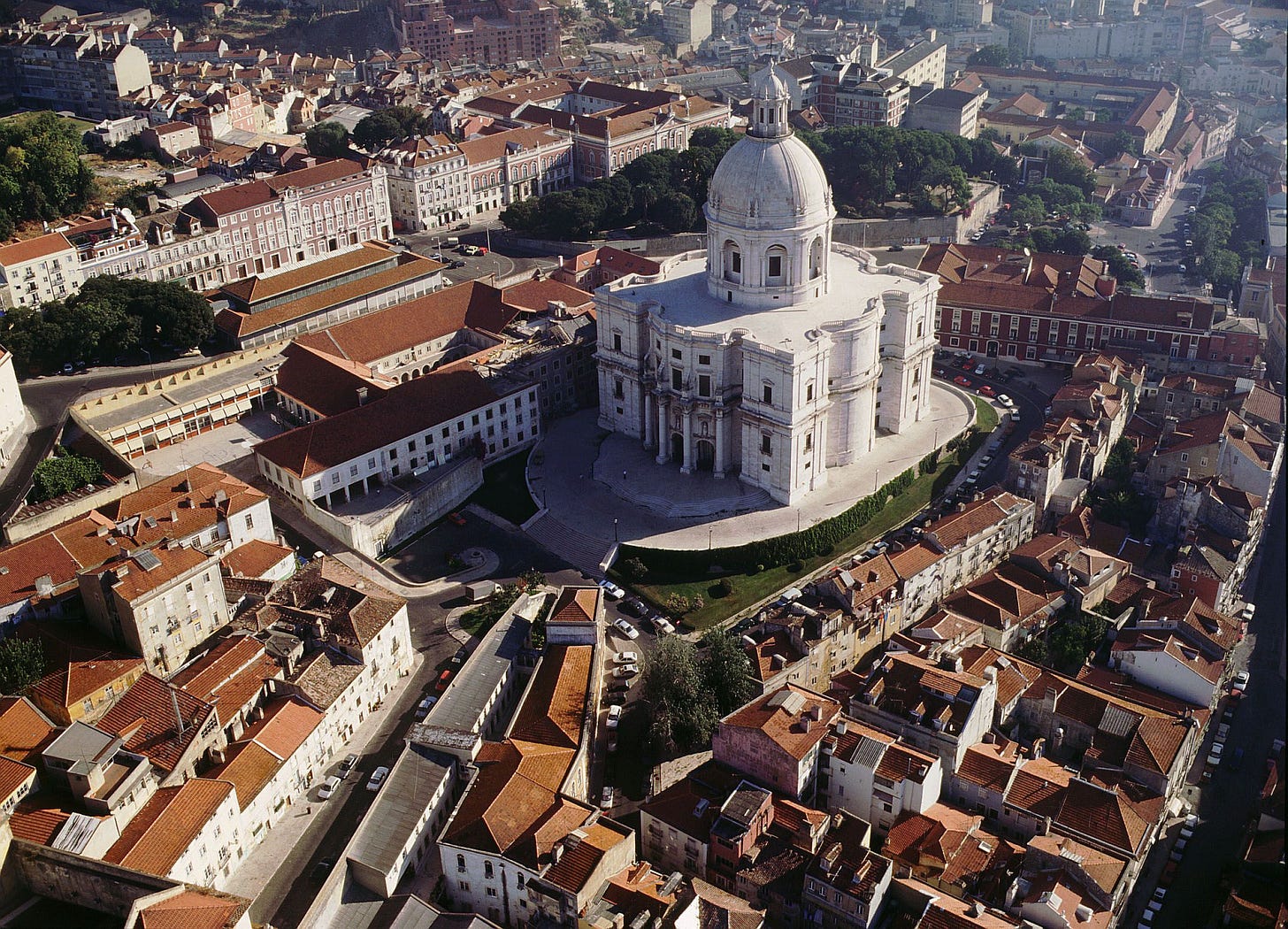The remains of Eça de Queirós laid to rest in the National Pantheon
The honor recognizes Queirós’s towering achievements in Portuguese literature, particularly his pioneering contributions to 19th-century realism.
What?
The remains of renowned Portuguese writer Eça de Queirós, who the New York Review of Books called “The Proust of Portugal,” were laid to rest in the National Pantheon this Wednesday, marking the end of a protracted legal and familial dispute.
Initially planned for September 27, 2023, the ceremony was postponed due to a legal challenge by some of Queirós’s descendants.
The Supreme Administrative Court ultimately dismissed the objections, clearing the way for this tribute to one of Portugal’s literary icons.
Queirós, author of The Maias, The Crime of Father Amaro, and The Relic, among other celebrated works, will become the 13th figure enshrined in the National Pantheon.
This distinction recognizes his monumental contributions to Portuguese literature and culture.
A Journey from Paris to the Pantheon
Born in 1845 in Póvoa de Varzim, Eça de Queirós died in Paris on August 16, 1900.
His remains were repatriated to Portugal shortly after his death and interred in the family tomb of the Counts of Resende at the Alto de São João Cemetery in Lisbon.
In 1989, his body was moved to a cemetery in Santa Cruz do Douro, near Baião, where the Eça de Queirós Foundation maintains a museum dedicated to his life and work.
The campaign to honor Queirós in the National Pantheon began in earnest in 2021, led by his great-grandson Afonso Reis Cabral, also a writer, and supported by Socialist Party lawmakers.
Despite unanimous parliamentary approval, the decision faced resistance from nine of Queirós’ 22 great-grandchildren, who filed legal challenges to delay the process.
These efforts culminated in a January 2024 ruling in favor of the transfer.
The honor recognizes Queirós’s towering achievements in Portuguese literature, particularly his pioneering contributions to 19th-century realism.
His works, such as The Maias, are considered masterpieces of their genre, exploring themes of societal hypocrisy, moral decay, and human folly with wit and incisiveness.
Honors in the National Pantheon
Wednesday’s ceremony was attended by Portugal’s highest-ranking officials, including the President, Prime Minister, and the Speaker of Parliament.
Following the formal transfer, they signed the National Pantheon Burial Deed, commemorating this historic moment.
Over the weekend, the foundation hosted a public homage at his former burial site, providing an opportunity for admirers to pay their respects before his remains were transported to Lisbon.
Eça de Queirós is the seventh literary figure to receive National Pantheon honors, joining Almeida Garrett, Guerra Junqueiro, Sophia de Mello Breyner Andersen, and others.
These honors are conferred by the Portuguese Parliament to citizens who have made extraordinary contributions to the nation in fields such as culture, science, and public service.
The National Pantheon, housed in the Church of Santa Engrácia in Lisbon, was established in 1836 and has been a resting place for Portugal's luminaries since 1966.
The inclusion of Queirós’s remains will necessitate opening the final available crypt room, leaving just three spaces for future honorees.







"...the decision faced resistance from nine of Queirós’ 22 great-grandchildren..."
Why? They didn't want him to be so honoured?